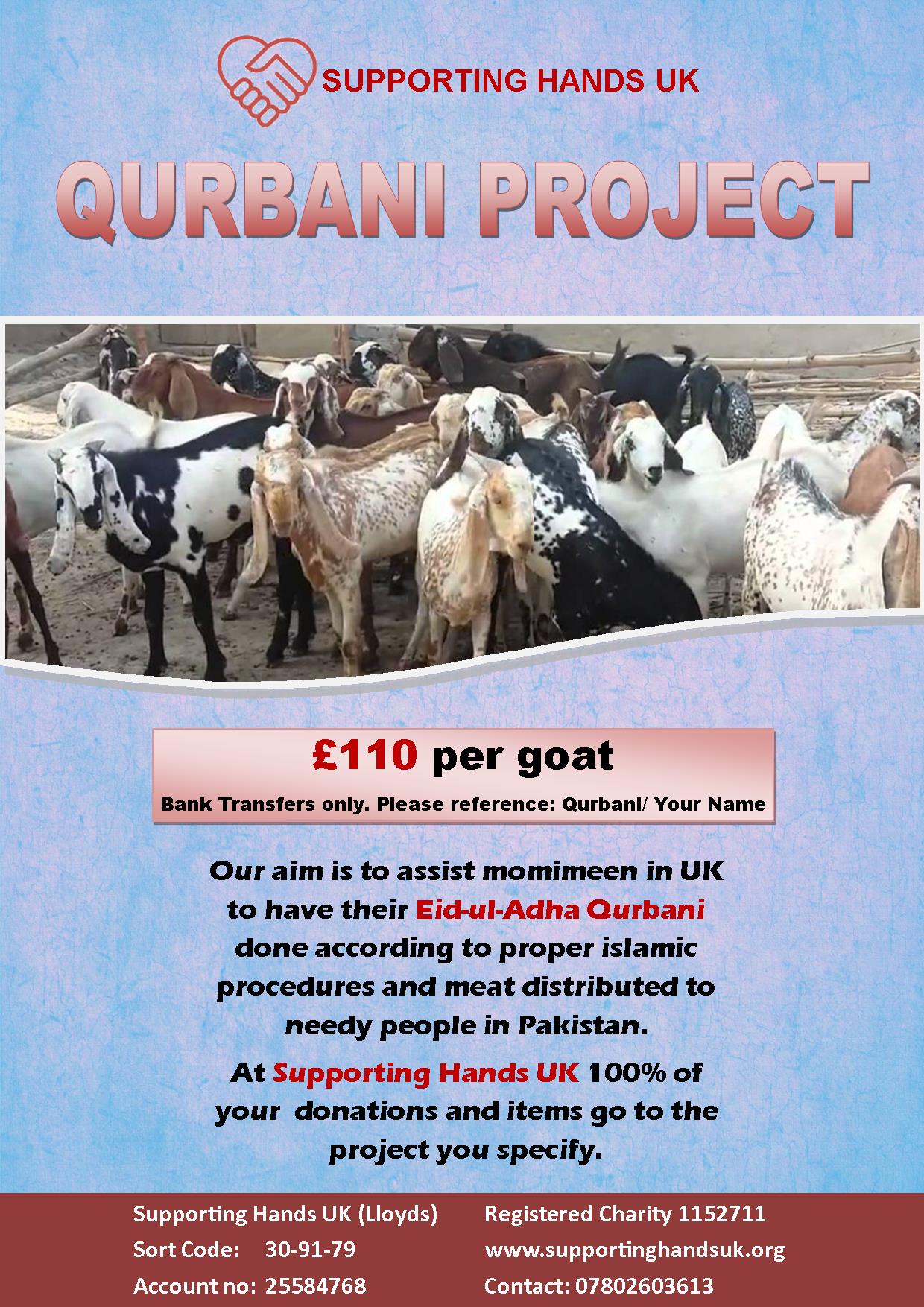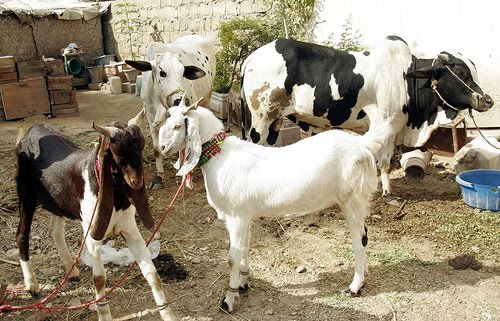Another obligatory act in Mina following Ramy Jamarat al-Aqaba on Eid ul-Adha is sacrifice of an animal (camel, cow, or sheep) free from any defect and not thin. It is called ‘Qurban –offering-’, because this act of worship is aimed at getting close to God.
Therefore, ‘qurban’ is any good deed by which man seeks God’s mercy. Since sacrifices are offered in the early hours of the day, it is also called Eid ul-Adha, and the animal sacrificed is called ‘dhahiyya’. Sacrifice is a symbol of devotion and offering one’s life in the way of the Beloved and the maximum degree of submission to God. Imam ‘Ali read the following duaa upon offering the sacrifice:
“In the Name of Allah. I have turned myself, being upright, wholly to Him Who originated the heavens and the earth, and I am not of the polytheists. Surely, my prayers, my sacrifice, my life, and my death belong to Allah the Lord of the worlds. O Allah, whatever I have comes from and is for You.”70
The offering of animal sacrifice on Eid ul-Adha enlivens the memory of Prophet Ibrahim and his son Ismaeel (as). The father says,
“O my son, surely I have seen in a dream that I should sacrifice you. (The Holy Qur’an; 37:102)”
The young son, too, without having any fear, says,
“O my father, do what you are commanded; if Allah please, you will find me one of the patient ones. (The Holy Qur’an; 37:102)”
This is the utmost degree of devotion, which is worthy of God’s saying,
“And We ransomed him with a great sacrifice. (The Holy Qur’an; 37:107)”
It was so destined that this great act of devotion to become part of the Hajj rites and to be repeated every year in the Hajj seasons. Prophet Ibrahim’s act of devotion became source of pride for human beings before the angels


